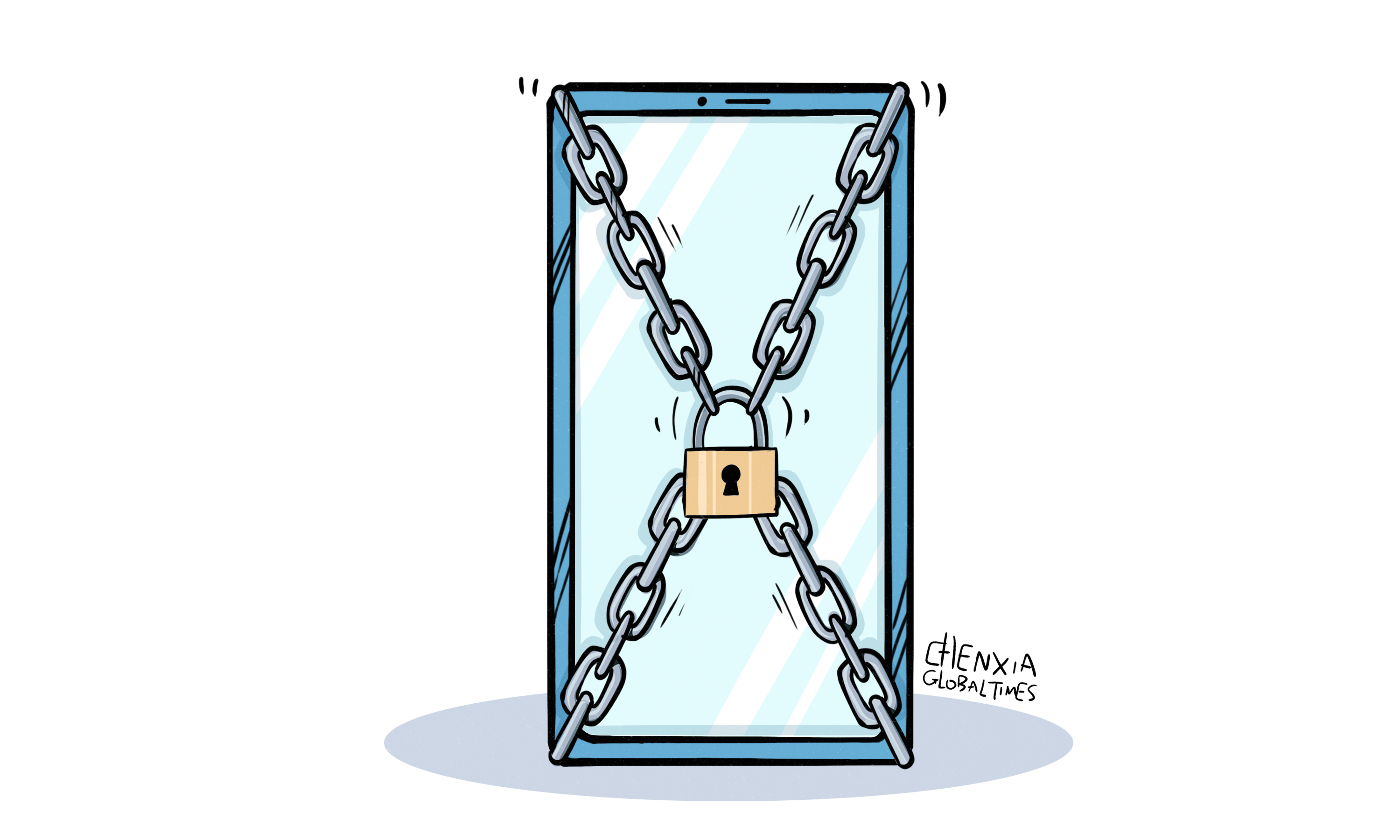
Illustration: Chen Xia/Global Times
Indian authorities have prevented Chinese smartphone maker Vivo from exporting 27,000 smartphones for more than a week, Bloomberg reported on Tuesday. The shipment, which is worth nearly $15 million, is being held up at the New Delhi airport over an alleged "mis-declaration of the device models and their value," the report said.The news and specific reasons behind New Delhi's move are to be confirmed, but the issue has once again raised eyebrows among Chinese companies about the Indian market, given India's growing restrictions and investigations targeting Chinese companies this year. Relevant departments in India need to further investigate and make clarifications in a timely manner to dispel anxiety amongst the business community.
Vivo, on the other hand, should actively cooperate with relevant departments in India to clarify the actual situation. If the company has received unfair treatment, it should not hesitate to take effective measures to defend its legitimate interests.
The concerns about the problematic Indian market seem to grow among Chinese companies these days. It is a result of Indian government's repeated restrictions, investigations and fines imposed on Chinese enterprises over recent years. Take Vivo. After many of its branches in India were raided in the summer, it was forced to ask an Indian court to quash the decision by the country's financial investigating agency to seize 4.65 billion rupees ($59 million) of its assets.
For Chinese companies such as Vivo that have long contributed to the Indian economy and operate legally there, if they have to frequently pick up legal weapons, the last line of defense for their business in India, to maintain normal operations, how do they have confidence in India's business environment?
In fact, concerns about the uncertainty of India's business environment are not limited to Chinese companies. The tax and financial issues that India used to investigate Vivo and other Chinese companies is a way that the Indian government often uses to regulate or restrict companies from other countries. The Indian tax authorities have conducted tax probes on Shell, Nokia, IBM and many other foreign companies, some of which the Indian authorities lost litigation cases in the end, according to media reports.
It is highly damaging for the Indian economy, should such issues remain unaddressed. India's economic growth needs foreign investment. If India uses more unfair practices to aggravate foreign companies' concerns, it will not only hurt the interests of Chinese companies, but the reputation of India's business environment may be irreversibly damaged.
In recent years, the Indian government has used incentives to drive smartphone makers to invest heavily in building production lines in India. India's eagerness to boost its domestic mobile phone industry and manufacturing sector is understandable. However, the reality is that, as many technology analysts said, it will be difficult for India to rid its dependence on China's relatively cost-effective mobile phones.
There is no doubt that no country can achieve the goal to boost its own industry by restricting competitors from other countries through non-market means. Instead, the lack of respect to market rules and instances of random regulation will eventually lead to the withdrawal of foreign companies from India. The wrong approach of protectionism will not only fail to revitalize India's domestic mobile phone manufacturing, but will also drag down the Indian economy.
India should take measures to dispel the widespread concerns of foreign companies, especially Chinese companies, about the business environment in India. Doing so will not only help India fully attract foreign investment and stabilize its economic growth. In the long run, this is also conducive to India's ambition to boost its domestic manufacturing industry and domestic mobile phone industry.
In the case of Vivo, Indian officials should ensure compliance with laws and regulations, increase transparency, and protect the legitimate rights and interests of the Chinese mobile phone maker. Whether this Vivo incident can be well resolved will have a strong demonstration effect on a vast number of other foreign companies.
The author is a reporter with the Global Times. bizopinion@globaltimes.com.cn


